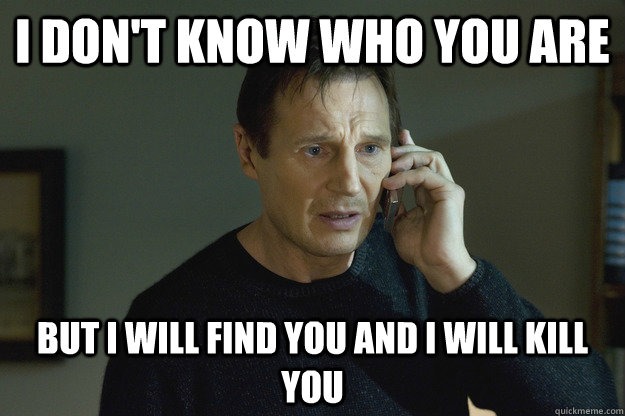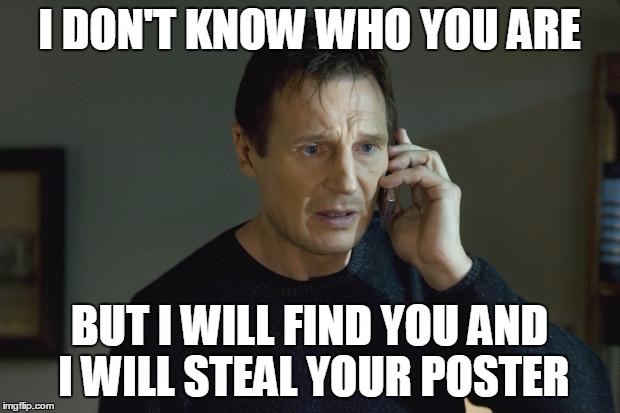Next write-up.
So apperently the Universe conspired to make me watch
Streetcar Named Desire. The bloody movie was featured every day on TCM. And then when TCM listed
Asphalt Jungle as next up on the menu - guess which movie showed up instead! So I said, "geez God, I get it! I'll watch the damn film!" And... it was really good! Honestly, initially the film had me laughing. Brando was doing his whole "I am Sex - Women, Tremble at your Knees!" routine and Vivian Lee was just theater! theater! theater!

There was an air of campy fun about it all. But, as the movie progressed, I was suckered into the drama. I kinda wished for Brando's character to develop in a more sympathetic direction - but dramas are supposed to sting from time-to-time.
Then I saw
Guess Who's Coming to Dinner. Quite a good film. It's always interesting to see a movie that doesn't tackle racism from the side of some political extreme, and instead focuses on the racial-disposition of normal, everyday people. I know that Tracy was dying at the time -- and you could virtually feel that in his performance. It almost felt fatalistic. That said, the daughter came off as a bit of an airhead. It's one thing to not see colour, it's a completely different thing to act as if you're completely oblivious to the fact that everyone else does.

After this, I decided to expand on the "every Kubrick film improves on a re-watch" theory and take another shot at
The Killing, which is my least liked Kurbick film (haven't seen his two first ones). It... didn't really improve. I still think its a minor great though. A very well executed heist-film with a spring of vitality to it. The "Will of God" ending is rather striking - though a bit uncharacteristic for Kubrick's style. The sexual power-dynamics on display may be one of Kubrick's little ticks that is in its nascency here.
So while The Killing didn't really improve for me, it did have the positive benefit of sending me on a mini Noir-spree. I saw
The Killers, Asphalt Jungle and
This Gun For Hire. I considered all 3 to be superb!
The Killers had this very cruel, gritty world-view going for it. The opening scene establishes this perfectly and keeps the ball rolling throughout. It's Citizen Kane-styled narratives seems very fitting. Ava Gardner played the dejected, strong-willed femme fatal very well and Burt Lancaster - whom I previously mostly knew from his adventure films like
The Flame and the Arrow and westerns like
Vengeance Valley - played the tragic hero impressively, especially since it was his first outing.
Unlike
The Killers grimdark tone,
Asphalt Jungle was much more about humanizing the criminals, while simultaniously not denying the cruelty of their world. It really rests on some strong, distinct characters. You really like the gang - even though they arn't excactly perfect humans. Excluding the characters, the rest of the packet reminded me very much of
Jean-Pierre Melville's type of films. You have this familiar, almost cordinal relationship between cops and criminals - as well as the bank-heist scene that is felt very mych as one of Melville's "process scene". Superb film overall.
This Gun For Hire was by far the most uneven film of the bunch, but maaaaan did I love Veronica Lake's and Alan Ladd's personas in this movie. They are just a perfect screen couple and the story really exploits this fact. The entire film just had this cool vibe going for it and was super-engaging whenever the main characters was on screen. While some of the suporting cast gave a B-level performance (not the old man who did a Montgomery Burns though

), the sheer coleness and Ladd/Lake's presences elevated the film to the same lofty levels as Asphalt Jungle and The Killers for me. Whenever feminist scholars talk about wanting more "strong female characters", I hope Lake is the one they are all referring to. And obviously Alan Ladd's gunman was an major inspiration for
Le Samurai.
And "You look like you've been in a hay ride with Dracula" is a damn good sentence.

Speaking of Alan Ladd, I've really liked virtually everything that he's been in. Even though he's pretty much playing himself in every movie -- that is to say: pained, and introverted. I've even liked him in stuff where he was hilariously miscast, such as in
The Iron Mistress, where he plays freaking Jim Bowie of all people.

Or in
Duel of Champions, where he clearly was so hung-over that he couldn't actually act.
This Gun For Hire is probably one of his most atypical performances, even though it follows this template as well.
Shane is one of my favorite movies of all time so there's that too. Anyways,
Rebel Without A Cause was on TV, and then I noticed this scene -- and I realized... to my great amazement... "Shit... I would totally have been Plato if I'd been a teen during the 50's."

Moving on... I saw a trilogy of various Martial Arts movies. First up is
Sugata Sanshiro Part II -- the final part of Akira Kurosawa judo saga! I had seen the first one a while ago but had not managed to get my filthy paws on the second part until now. Both films are oddly uneven, partly due to missing footage I believe. It's an interesting take on presenting judo on film. Unlike, say, Cagney's
Blood on The Sun, which displayed a rather realistic, straight-forward, rough-and-tumble portrait of judo-battles, Kurosawa does it completely diffrently. He employs a score of cinematic tricks and quick-edits to convey the action, often showing the various mechanism that go into making a judo-throw happen before the actual toss occures (Kurisawa also hilariously overestimates how painful a judo toss really is

). It's more theatrical really, with opponents often flying a great distance than what they actually should. There is also a rather odd sense of humanism on display. Even in these, his earliest films, Kurisawa actively explores the consequences of the heroes actions. He shows the pain of crippled opponents and the lamentations of relatives. Simultaniously to this, there is a lot of WW2-era anti-americanism ongoing in the Second Part (typical American are brutish, unprincipled bullies stuff). Overall, Kurosawa's amazing craftsmanship definitvely elevates both films though. You can really tell that he takes much from the silent era. He uses crowds, movement and the forces of nature to give his films dynamism and drama. Interesting that even in his first films he had this methodology nailed down.
As for the second martial arts film, I saw
The Fate of Lee Khan, by King Hu. It was one of those movies that both sucked and rocked simultaniously. As is King Hu's trademark, there is a certain operatic cooleness about everything. He presents his characters and actions in a way that totally elevates the material. This is especially vitalizing to the numerous female characters in this film -- he just has an unique touch with presenting actresses. On the negative side though, the choreography is remarkably uninspired. And the entire narrative is just plagued my multiple instances of weak, action-and-consequences logic. There is especially one head-scratching scene -- that I almost think has to be a subtitle error for just how dumb it is. Basically it goes something like this.
Captain: Tell me guide, do you know the hotel's staff well?
Guide: Yes, I've known all of them for over 2 years!
Captain: What about that one?
Guide: He is the Mistresses cousin, he just started yesterday.
Captain: Aha! You said you've know everyone for over 2 years! You lie!
And then the Guide goes down on his knees and cries for forgiveness.

Lastly, I watched Champions with Ken Shamrock.

Pretty fun 90's era B-movie. It did feel a lot like it's contemporaries, the straight-to VHS martial arts flicks being pumped-out at that era, with a bit of traditional-martial-arts vs barbaric cage fighting going on. I like how the movie initially focuses on the main character and mid-way through pretty much does a switchero and places Ken Shamrock in the driving-seat instead.

Danny Trejo was animated fun as the evil CEO. The movies narrative got a bit to scattered and prolonged, especially towards the end. There is a Gracie call out that made me smile. At one time, they referenced someone they called Kathy Lee, and I almost suspect they mispronounced and intended to refeer to Kathy Long instead (whom was a kickboxing champion and movie star that was one of the commentators for UFC 1).
. Fitzcarraldo is great but I've always leaned more towards Aguirre.









